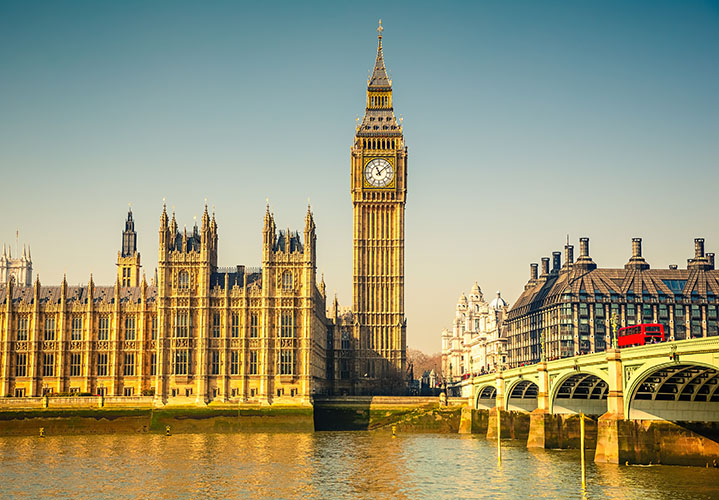The first of potentially numerous reforms towards strengthening corporate transparency and accountability under s.54 Modern Slavery Act 2015.
Earlier this year (11 March 2021) the government launched the Modern Slavery Statement Registry. This is an online database of organisations’ modern slavery statements (regardless of whether the statements were produced voluntarily or as required under the Modern Slavery Act 2015 (MSA)). The move follows the publication of the government’s response to the Transparency in Supply Chains Consultation in September 2020 (Consultation). The Consultation charted a roadmap for reforms to strengthen corporate accountability with respect to modern slavery.
Background
Under section 54 of the MSA, commercial organisations who supply goods or services in the UK and who have a total turnover of £36m or more must prepare an annual statement for each financial year. The Statement must detail the steps taken to ensure slavery and human trafficking does not exist within the organisation’s business or supply chain, or that no such steps have been taken.
Section 54(5) and subsequent guidance from the government outlines various issues that may be explored within such statements, including the organisations’ due diligence processes.
The underlying motive of the disclosure regime was to foster a greater awareness of organisations’ responsibilities towards human rights issues and help hold organisations accountable through enhancing transparency. It has certainly helped draw attention towards the significant human rights risks present within supply chains but it lacked teeth and has drawn plenty of criticism for not going far enough in holding organisations to account.
This criticism was borne out by a government commissioned Independent Review published in May 2019, which identified significantly low levels of reporting quality and observed a “box-ticking” approach. Criticism has also centred on a widespread lack of compliance, with the Independent Review estimating that roughly 40 per cent of eligible companies are not complying with the legislation at all. This issue has been partially attributed to the weakness of the enforcement mechanism that relies upon the Secretary of State bringing civil proceedings to enforce against non-compliance. To date no action has been brought.
As a result the government launched the Consultation to assess the options for strengthening compliance, reporting quality and broader accountability.
The Registry
One of the key commitments provided by the government in response to the Consultation was to create a government-run reporting service where companies may submit their modern slavery statements to be held on a central registry.
By bringing various organisations’ statements together, the underlying aim is for the registry to make it simpler to locate, assess and contrast statements; thereby strengthening transparency and accountability through better exposing those organisations adopting a minimal compliance approach. The inclusion of search filters should allow for a more efficient assessment of similar corporations, for example with respect to turnover or budget.
The government was the first to publish their statement of March 2020 on the registry and are encouraging organisations to publish their statements to demonstrate compliance with s.54.
Though publication on the registry remains optional, organisations falling within the scope of s.54 are still required to publish their statement on their website with a link to it in a prominent place on the homepage, or make available copies of the statement to those who request it if there is no website.
The government intends to make publication onto the registry mandatory in the near future, however until then the Home Office will be sending out letters to all UK incorporated organisations encouraging them to upload their statements.
What’s next?
In addition to the creation of the registry, the government has outlined various changes to the disclosure regime it is seeking to implement:
- A reporting deadline requiring organisations captured under s.54 to report on the same 12 month period (1 April to 31 March), with a single annual reporting date of 30 September.
- Extending s.54 to cover public bodies with a budget threshold of £36m or more.
- Requiring statements to disclose the date of board approval of the statement and director sign-off.
- Mandating specific areas that statements must address.
- Imposing civil penalties for non-compliance. These are expected to be financial penalties.
Modern Slavery (Amendment) Bill
Careful attention should also be afforded to the Bill introduced into the House of Lords on 15 June 2021, proposing various amendments to the MSA. The key proposed amendments include:
- The introduction of a criminal offence for supply of a false modern slavery statement. It would be a defence to prove the person responsible for the statement took all reasonable steps to ensure the statement is corrected, and informed the Independent Anti-slavery Commissioner (Commissioner) as soon as practicable after becoming aware that the statement contains false information. An offence would be punishable with imprisonment and/or a fine of 4 per cent of the organisation’s global turnover, subject to a cap of £20m.
- The introduction of a criminal offence for continuing to source from supply chain entities where the Commissioner has issued a formal warning with respect to demonstrating minimum standards of transparency. An offence would be punishable with a fine of 4 per cent of the organisation’s global turnover, subject to a cap of £20m.
- An increase in the transparency standards that organisations are expected to attain, including the requirement to publish and verify information about the country of origin of sourcing inputs in its supply chain.
As a Private Members’ Bill, the Amendment Bill does not have governmental support and therefore its likelihood of being passed into legislation is uncertain. The Bill nevertheless reiterates the increasing focus of policymakers on tightening regulation with respect to businesses and human rights, and its proposals may be pursued by the government. With the increasing emphasis at boardroom level on ESG and sustainability the reputational risk of failing to comply could be significant.
It is therefore crucial that businesses of all sizes remain up-to-date with these developments in order to ensure they are not falling short of their legal obligations.

 Nicola Broadhurst
Nicola Broadhurst